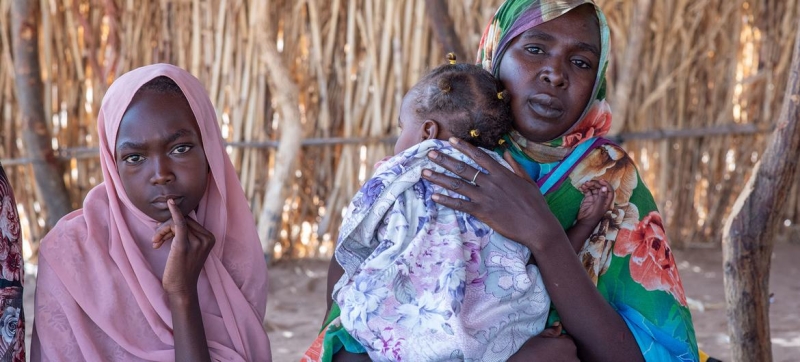
There are no safe spaces left in Sudan where women can find protection or receive basic psychological support. Sudan: Women systematically suffer from hunger, violence and bombs Women
In war-torn Sudan, women are the main victims of hunger and violence. UN Women warns about this, citing its sources in the country.
“The women we speak to in El Fasher – the epicenter of the current disaster in Sudan – say they have endured hunger, displacement, rape and bombing,” Anna Mutawati, UN Women’s regional director for Eastern and Southern Africa, said at a briefing in Geneva. “Pregnant women gave birth in the streets as the last working maternity hospitals were looted and destroyed.” Militants from the so-called Rapid Reaction Force captured the capital of North Darfur state, El Fasher, after more than 500 days of siege, in late October. Immediately thereafter, reports of mass atrocities began to emerge, including extrajudicial killings and sexual violence.
A Brief History of the Conflict
Fighting between the Sudanese Armed Forces and a group calling itself the Rapid Reaction Force began in April 2023 after the transition to civilian rule that was expected to follow the overthrow of the country’s longtime ruler Omar al-Bashir in 2019 was disrupted. Fierce fighting has forced millions of people to flee their homes and has worsened an already dire humanitarian crisis. Recall also that in 2008 the UN Security Council recognized that conflict-related rape and other forms of sexual violence may amount to war crimes, crimes against humanity and elements of genocide. According to Anna Mutawati, the situation is rapidly deteriorating as the war zone around it expands El Fasher, causing massive population displacement. Thousands of women and girls have fled to other parts of North Darfur, where humanitarian presence is extremely limited. On Monday, the UN Office for the Coordination of Humanitarian Affairs (OCHA) said nearly 89,000 people had fled the region. Many of them are now on the border with Chad. “Women say that along this horrific journey, every step towards a source of water, for firewood or in line for food carries a high risk of sexual violence,” the UN Women spokeswoman said. “There is growing evidence that rape is being used purposefully and systematically as a weapon of war.”
Searching for Safety
Anna Mutawati says there are no safe spaces left in Sudan where women can find protection or receive basic psychological support. In North Darfur, a pack of sanitary pads costs about $27, while the average monthly humanitarian cash assistance for a family of six is less than $150. Families are forced to make difficult choices “between food, medicine and maintaining their dignity.” “The basic needs of women and girls are at the bottom of the list,” Mutawati said. In Sudan, she said, women and girls eat “the least and the last.” “Most women and girls in Sudan go hungry… Women often forgo food to feed their children, and teenagers receive the smallest portions, which undermines their long-term health,” she said. “In besieged and remote areas such as Darfur or Kordofan, it is women and girls who are forced to forage for food to survive,” she added. Mutawati, citing reports of women “gathering leaves and berries to make soup,” exposing them to additional risks of violence.
Hunger worsens
The latest UN food security analysis, done in early November, confirmed the presence of famine in El Fasher and the capital of Southern Kordofan, Kadugli. Doctors are recording an increase in cases of acute malnutrition among infants, often associated with the fact that starving mothers lose the ability to breastfeed. “The hunger that women experience causes a chain reaction,” warned Anna Mutawati. “Every day that the world hesitates to act on Sudan, another woman gives birth under fire, buries a child starved to death, or disappears without a trace.”
